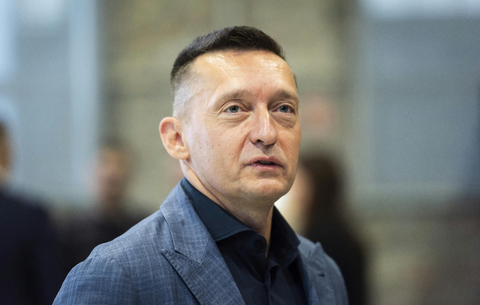Record highs
The Budapest Stock Exchange set several new records at the beginning of the week. The BUX rose to new highs as Mol shares were sold by the Rahmikulov family to the Austrian oil company OMV.
Monday was a busy day for the Budapest stock exchange. The BUX gained 3.4 percentage points, hitting an all-time high of 28,604, rising still further to 29,442 the next day. The exchange registered transactions totalling Ft80bn, some Ft22bn of which came from trading in OTP shares, with a further Ft50.5bn from trading in Mol. Both shares hit new highs. OTP shares closed on Ft10,100 on Monday, though they had reached higher levels during the day, as did Mol shares, which reached the unheard of level of Ft28,300. Mol shares also hit an even higher level on Tuesday, changing hands for over Ft30,000 each, against total transactions worth more than Ft216bn. Mol shares were some 10 percentage points costlier than their Friday closing price, despite Friday itself seeing an 8 percentage point rise. (The state sold a 10 per cent stake in Mol last May at Ft22,00 a share. Small investors could buy shares in December for a subsidised price of Ft19,592).
Analysts say most of the shares sold today are linked to Megded Rahimkulov, his son and their company. At the end of May, the family announced that their company Kafijat Investment and Asset Management were raising their stake in Mol to 5.2 per cent, via their London-registered company Firthlion Ltd. Once it became known that the Rahimkulovs tend to pump billions into their investments, rumours started flying that the family would boost their holdings in the company still further before selling their stake to Rusia's Gazprom.
Once capital raising was complete, Mol started a share buyback campaign last Friday. Analysts said this was to prevent any takeover attempt. Legal restrictions forced them to do this by passing 8.7m shares to OTP Bank. The Rahimkulovs reacted by selling some of their Mol shares, taking their stake below 5 per cent. The buyer was VCP Capital Partners Unternehmensberatung, which almost immediately passed their 6.186 per cent stake to OMV, the Austrian oil company. OMV also bought from some American funds, taking its original 10 per cent position up to 18.6 per cent.
"The shares were offered to us, and we didn't want any other buyer to get hold of them," explained Wolfgang Ruttenstorfer, OMV's chief executive, when HVG asked why they had chosen this moment to buy more Mol shares. Furthermore, he said, the existing stake had proven useful, making the offer of more shares a tempting one. He added that competition was about to pick up in the central and east European markets, especially under the influence of Russian companies, which are regarded as aggressive. For this reason, he said, it was urgent the the two most important regional partners got together to promote energy security and to reap the benefits of huge pipeline investments that are expected in the region.
Ruttensdorfer says Mol's management had approached him to hold discussions about deeper cooperation between the two regional giants. He says the share transactions were friendly, dismissing the claim that the transaction was linked to a recent agreement between OMV and Gazprom to operate a joint strategic gas storage centre in Austria.
HVG asked Ruttenstorfer what good it did his company to double its stake in the company if the rules prevent any single shareholder from having more than 10 per cent of the voting rights. He said his company did not want to join the company's board of directors and had no desire to interfere with the Hungarian management, which he said had been effective. He wanted financial benefits as a shareholder, he said. When asked whether OMV might take a further stake in Mol, he said any such decision would depend on developments within the region. Shareholder decisions are often opaque. For example, AEB Bank, which is indirectly owned by the Rahimkulov family, bought a number of Mol shares on Monday and Tuesday. But analysts doubt OMV will buy Mol, if only because of the latter's extremely high valuation. Some suspect OMV may sell its shares to Russian or another country's companies, giving them a more effective voting right. Mol said in a statement that it was following OMV's transactions "with interest", while stressing it was pleased to that OMV saw Mol shares as an attractive investment. Mol nonetheless added that it preferred partners that had no dominant or influential state owner. The Austrian state owns 31.5 per cent of OMV's shares.
ZSUZSA FÖLDVÁRI/VIENNA, PATRÍCIA MOLNÁR









